How "green" are specialty recycling programs?
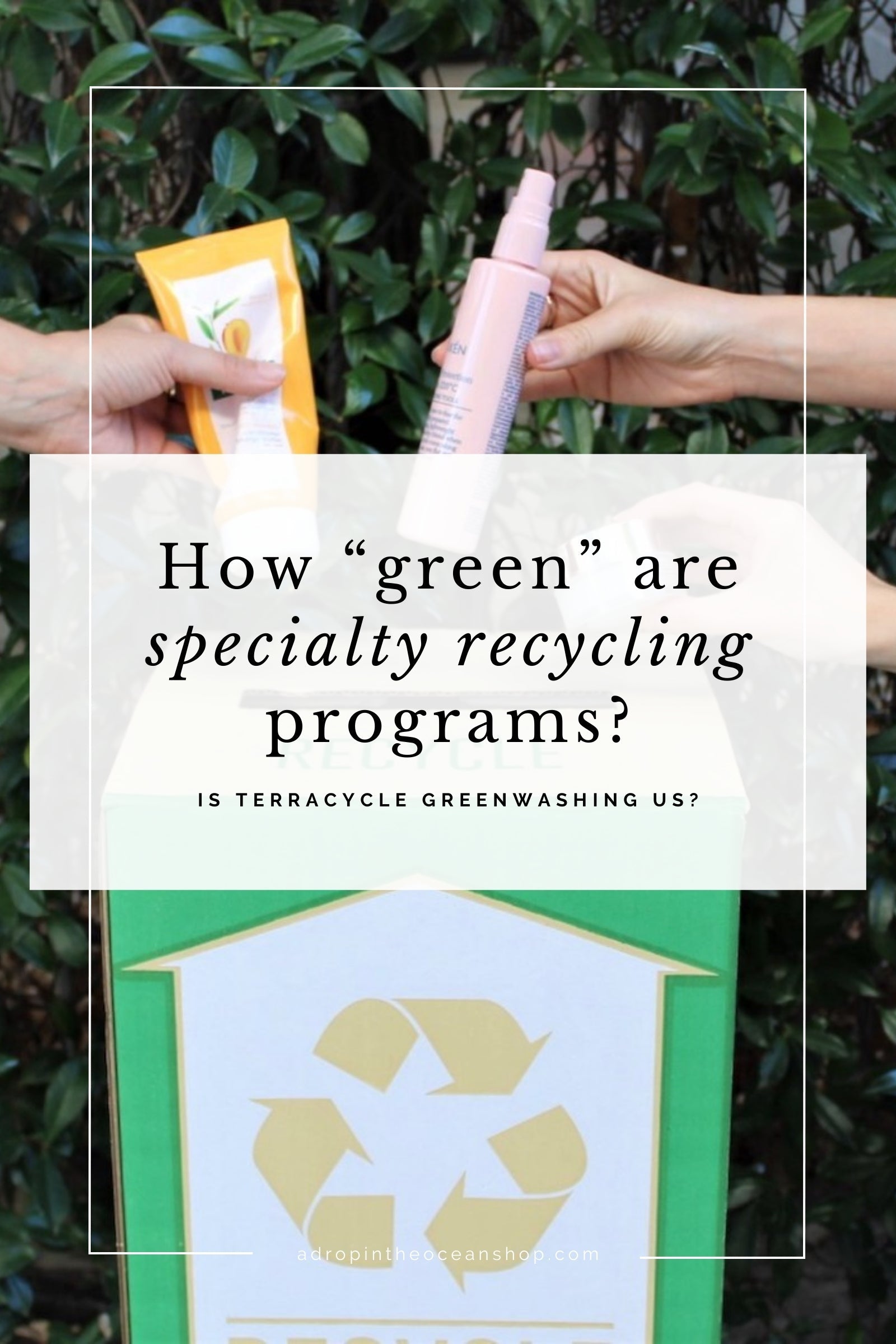
This post first appeared in our weekly Make Waves Mondays email series on April 18, 2022, and was updated and re-shared again on March 25, 2025.
Okie dokie, friend - here's the dealio:
I've got a real stinkin' good topic in the queue for next week. Like, on par with our textile recycling post kind of good.
I was originally planning to share it this week, but - just like our textile recycling post - it's taking a whole lot longer to put together than I originally anticipated 😅 (I'm countless hours, 15 sources, and 5 pages of bullet-points notes deep and still in the research phase...even on top of all of the preliminary research Nichole did first.)
But I just KNOW that you're going to get so much out of it and I'm so dang excited to share it with you next week.
So in the meantime, I wanted to take today to revisit a topic we discussed a few years ago, that I think will be so relevant leading into next week's topic - specialty recycling programs.
In the research I'm doing for next week's topic, I'm finding myself constantly struck by the juxtaposition of, "Hey look at all of the horrible problems that our waste is causing - even from its production," and "Let's recycle more!"
There's this disconnect between problems and solutions.
As the saying goes, "If your bathtub was overflowing, you wouldn't immediately reach for a mop - you'd first turn off the tap."
And yet, there's a whole lot of talk about the gosh dang mop.
So let's talk about what may be my hottest of hot takes in the sustainability space (because you know ya girl has a lot of hot takes lol): why I don't support specialty recycling programs.
Let's dive in 👇
What are specialty recycling programs?
Okay first, let’s set the stage.
What exactly are specialty recycling programs?
If you’ve heard of TerraCycle, you’ve heard of specialty recycling programs.
There’s also Ridwell, which has become increasingly popular in the Puget Sound region, as well as a few other regions across the country, in recent years.
Specialty recycling programs provide a service to you, as the consumer, in which they collect hard-to-recycle materials.
Some programs, like Ridwell, are a doorstep pickup service. You pay them a monthly fee, collect your hard-to-recycle items in their provided container (such as plastic film, textiles, and batteries), and they pick up the items on a regular basis from you.
Other programs, like TerraCycle, are a mail-in service. You collect your hard-to-recycle items in very specific ways and then mail your items to them.
TerraCycle also has some drop-off locations for a portion of their accepted items, and they also have some boxes you can purchase to keep in your home or office and then ship back to them when they are full.
Specialty recycling programs range in price point, with some being free to you as the consumer and some in the several hundred dollar range.

Image from TerraCycle.
What’s the appeal of specialty recycling programs?
Municipal, or city, recycling programs vary widely from city to city. It can be incredibly difficult to keep up with what’s recyclable where, and how.
Especially when we consider how difficult so many packaging materials are to recycle and how rare it is for many of these things to be accepted by municipal recycling, specialty recycling programs “pick up the slack.”
When we can’t totally avoid granola bar wrappers, for example, because our kids are always running off to soccer practice with no time to spare, a specialty recycling program takes those wrappers off our hands.
We no longer feel the guilt of using single-use packaging, because it’s no longer going to landfill.
These programs offer us convenience and a solution to reducing landfill waste. Or so they tell us.
On the surface, it sounds like a win-win.
So why don’t I support specialty recycling programs?
I live a zero waste life and I have been since 2017. I try to reduce the waste that I send to landfills on a daily basis. So having a specialty recycling program at my disposal should be something I would support, right?
Not so much.
What is “recycling”?
Recycling is “the action or process of converting waste into reusable material.”
We are taking something that was once considered waste and turning it into something new. Something usable.
But not all recycling is created equal.
There’s closed-loop recycling, where an item is turned back into the same item again (think, aluminum cans), and there’s open-loop recycling - or downcycling.
Plastics are always downcycled.
A plastic bottle cannot be turned back into a new plastic bottle. Instead, it will be turned into something like a park bench or a sweater. This is great for keeping resources out of landfills, but not so great at reducing the demand for new plastic bottles.
We want a closed-loop system. That’s how we reduce demand for virgin materials.
That’s the only way recycling will actually work.
But, the problem is, these specialty recycling programs are open-loop recycling. The reason the materials they collect are considered “hard-to-recycle items,” is because they don’t really have any value in the recycling market.
Glass and aluminum, for example, have high market value. They can be efficiently recycled back into glass and aluminum without losing any quality.
But things like plastic film can’t be. It takes a sh*tton of plastic film to make anything remotely usable from it. It’s a lot of work, a lot of resources, a lot of energy, for very little return.
So by recycling our “hard-to-recycle” items with these specialty recycling programs, we’re not actually reducing the demand for virgin materials.
When you recycle your chip bag with TerraCycle, you’re not reducing the demand for new chip bags - you’re building a park bench.

Who carries the recycling burden in these programs?
Recycling as a concept became popularized by the Keep America Beautiful organization back in 1953 when a bunch of corporations came together and decided that instead of packing their products more sustainably, they would pay a ton of money to create ads blaming consumers for littering and not recycling.
Essentially, corporations started blaming individuals for purchasing the products the corporations were producing.
They knew recycling wasn’t a fix, but there was rising popularity in the sustainability movement that was putting pressure on plastics manufacturers and major corporations to do better. So instead of doing better, they poured money into recycling campaigns that blamed us, their customers.
When we look at these specialty recycling programs, it’s the same old story.
Corporations are evading responsibility.
Although TerraCycle’s free programs are brand-specific and sponsored by the corporations behind the brands, this isn’t actually a sign of corporations taking responsibility.
If corporations were really taking responsibility for their packaging and waste, they would be using better packaging materials in the first place that are refillable or easily curbside recyclable.
But instead, they’re continuing to use the same unsustainable packaging they’ve been using that has led us into this waste crisis, and “sponsoring” another company to actually deal with the waste for them.
Corporations make consumers do the work.
Not only are these corporations continuing to use their unsustainable packaging, but now with these specialty recycling programs, we as consumers have to go out of our way to keep these materials out of landfills.
Especially with TerraCycle, the programs are split up by brand.
So let’s say you wear contact lenses, use Burt’s Bees lip balm, brush your teeth with Colgate toothpaste, and dust your home with Swiffer dusters.
There are TerraCycle programs for each of those things. But you’d have to collect each of those items in their own boxes, wait until the box is completely full (there is a minimum box size but I can’t seem to find that information without signing up), and then find a drop-off location near you for the contact lenses, request separate shipping labels for the lip balm, toothpaste, and dusters, and then mail them into TerraCycle separately - which you have to do through UPS, which means you actually have to drive to a UPS drop-off location…you can’t just hand a box to your mail carrier.
Yet SOMEHOW they’ve advertised and sold these programs to us as convenient 🙃
Like somehow it’s easier for us as individuals to do all of this work than for multi-billion dollar corporations to change their packaging.
Nope.

Image from TerraCycle.
The recycling programs aren’t always actually doing the recycling.
Ridwell, for example, offers a textile recycling program, which I was once intrigued by, because I get asked all the time where to recycle textiles.
So I did some digging.
Ridwell partners with an organization called Rag Mine Clothing for their textile recycling in the Puget Sound area.
(They definitely used to be called "Rag Mine Clothing Recycle," and their LLC is registered as "Rag Mine Clothing Recycle LLC," but they've apparently changed their public-facing name sometime in the last two years.)
On their website homepage, Rag Mine Clothing specifically states, "You can rest assured your used clothing and textile donations will go to developing countries..."
On their FAQ page, Rag Mine Clothing states there are four different avenues your donated clothing can go:
- A portion are sold by Rag Mine Clothing.
- A portion are sorted for quality and sold to international buyers.
- A portion are sold/donated to a clothing exporter who ships to numerous countries in Africa.
- A portion are sold to small scale local merchants and artisans to be sold, reused, and repurposed at local markets around the Puget Sound.
So, quite literally, Rag Mine Clothing Recycle LLC is doing zero actual clothing recycling.
Now on the surface, it doesn’t seem like there’s anything wrong with this. Our unwanted clothes are getting another life. What’s the problem?
The problem is developing countries are inundated with our old clothes at a completely unsustainable rate. The average American throws away 80 pounds of textiles every year. We are sending so many unwanted clothes to countries like Rwanda, Ghana, and Kenya that their once-thriving clothing and textile job markets have become basically non-existent.
And please note here that organizations like these aren't sending the top-quality clothes to these African countries. They're making top-dollar on the best items here in the States and then baling up the "leftovers" to send overseas.
And, unless you're someone like me who has a pretty solid distrust of recycling companies and will spend a ridiculous amount of time reading every page on a recycling company's website to find out exactly where your stuff is going, you'd probably just look at Ridwell's website and your growing pile of ripped, stained, worn-through, and generally unwearable clothes and towels, get excited that Ridwell accepts these kinds of textiles, and sign up to pay them $18 a month and call it a day.
But in reality, you'd be paying one middleman to make more money by selling your t-shirts to ANOTHER middleman, who will in turn sell your t-shirts again to YET ANOTHER MIDDLEMAN who will then sell your t-shirts AGAIN in markets that don't even want your clothes.
These organizations aren’t recycling our textiles into new clothes. They’re wrapping them in plastic and shipping them to another country to deal with - and these countries have already said they don’t want our hand-me-downs.
And then…we want small businesses to do the rest.
With the rise of zero waste shops has come the rise of expectations that these shops will provide TerraCycle or other specialty recycling programs.
It’s a conversation I see happening frequently among shop owners.
And a few years ago, I was asked if I could offer this as a service to our EcoWarriors.
I think it’s a fair question, because we are all in a community together trying to do better for the planet. It would make sense that specialty recycling would be part of that conversation.
Even TerraCycle is banking on this. In their 2022 annual report, they said, "Retail activation (collection of waste at select retailers) continues to provide growth opportunities."
But I also think that we need to recognize that small businesses - especially small, sustainability-focused businesses - are already doing the most.
For example, here at A Drop in the Ocean, I’m intentionally sourcing products that are made locally by other small businesses, so that when we say something is zero waste, it actually is.
All of our refillable products are totally closed-loop - there is nothing going to waste on our end or on your end.
I’m delivering your local orders personally and offsetting every mile I drive to minimize my impact.
I’m only shipping your orders via USPS so there are no additional emissions associated with your order because USPS is already coming to your home every day.
I’m collecting and reusing boxes from friends and community members.
I’m removing any unrecyclable materials from those boxes so you as the consumer don’t have to worry about it.
I’m using recycled paper tape and recycled paper shipping labels for your orders, when we all know plastic is so much cheaper.
I’m paying for shipping labels for you to return your empty jars and bottles to us and then making sure those bottles and jars are washed and completely clean so we can reuse them over and over again.
I’m spending countless hours every week writing these posts so we can all grow in our sustainability knowledge together and do better.
I’m donating to ocean conservation and planting trees with every purchase.
Small businesses are doing the most.
And yet, because these small, sustainable businesses are so passionate about sustainability, we expect them to foot the bill for us to be able to recycle packaging from multi-billion dollar corporations who are doing anything but the most.
We all want to do better, but are specialty recycling programs really the best way forward?

Image from Terracycle.
Let’s look at TerraCycle’s revenue numbers.
As I was writing the first edition of this post back in 2022, I found myself wondering what TerraCycle’s revenue actually looks like. And when I found some numbers, I actually laughed out loud.
And now, looking at some updated numbers, I did the same, but for slightly different reasons.
Bear with me here friend, 'cause I'm about to nerd out hard on revenue and profit data.
TerraCycle’s revenue comes from four different streams - sponsored waste programs, zero waste boxes, regulated waste, and material sales.
Sponsored Waste Programs are the programs that brands “sponsor” for TerraCycle to deal with their waste for them.
In 2022, the sponsored waste programs netted TerraCycle $16.7 million in revenue. That's a 7% increase from 2021. (In 2020 - the last time I looked at these numbers - these programs netted them $10.5 million.)
Zero Waste Boxes are the boxes consumers and businesses can purchase to keep in their homes or businesses and mail back to TerraCycle when they’re full.
In 2022, the zero waste boxes netted TerraCycle $13.6 million in revenue. That's a 21% increase from 2021. (In 2020, these programs netted them $7.5 million.)
This means that individuals are paying a full 81% of what massive corporations are paying to TerraCycle - and growing at a much faster rate than sponsorships. (In 2020, individuals were paying 71% of what corporations were paying.)
What's interesting to me this time around, is that in 2020, the profit from sponsored waste programs decreased 13% from 2019, while profit from zero waste boxes increased by 45% from 2019, suggesting that TerraCycle was on a fast track to making most of their money from individuals and small businesses rather than the massive corporations causing the problems in the first place.
But in 2022, for both sponsored waste programs and zero waste boxes, profits decreased significantly (42% and 70%, respectively). However, reviewing their 2022 SEC filing, TerraCycle invested significantly in marketing their zero waste boxes to bring in new customers, while they mostly continued status quo with their sponsored waste programs.
However, even though TerraCycle's profit fell sharply in these two revenue streams, it increased ~dramatically~ for their Material Sales, or the sale of the items collected from their sponsored waste programs and zero waste boxes (because, again, TerraCycle is nothing more than a middleman).
Terracycle's profit from material sales in 2022 was $1 million - a $3.7 million increase from 2021.
Yes - Terracycle lost $2.7 million on material sales in 2021, then in one year managed to profit $1 million.
But in their 2022 SEC filing, TerraCycle said their #1 customer for material sales was Life Science Logistics.
So, of course, I looked up Life Science Logistics.
And unless I'm missing something massive, Life Science Logistics is a logistics company for healthcare services - meaning they transport and store healthcare goods.
Why would a healthcare supply chain and logistics company be the largest purchaser of hard-to-recycle waste collected by specialty recycling programs? Especially a purchaser that boosted profits as much as this one?
My best guess (and this is just a guess) is they're acting as yet another middleman - storing all of the waste materials that TerraCycle can't because they've run out of room in their own warehouses, which is a documented problem that TerraCycle has had.
So my question is...is TerraCycle actually recycling...basically anything?
Oh yeah and TerraCycle was sued for misleading claims.
I won’t get into the details here because the articles written specifically about the lawsuit are great on their own. But in short, TerraCycle was sued a few years ago for misleading claims about their sponsored waste programs and how available they actually are for consumers.
Here’s an excerpt from one article about the lawsuit:
According to The Last Beach Cleanup, consumers purchase the products believing they’ll be recyclable, free of charge, at end of life. But they often ‘find out after purchasing the products that participation in Defendants’ free recycling programs are closed,’ the lawsuit states.
Instead, consumers are offered options that come with a cost, and many consumers ultimately throw away the packaging, according to the lawsuit.
‘Worse yet, some consumers instead discard the packaging into their curbside recycling bins, thereby contaminating legitimate recycling streams with unrecyclable materials and increasing costs for municipalities,’ the lawsuit stated.
The suit adds that TerraCycle and its brand owner customers ‘are reaping the rewards of portraying themselves as environmentally friendly without providing any meaningful benefit to the environment or to consumers concerned about sustainability.’
So, yeah, not great stuff happening over there. If you want to learn more about the lawsuit here’s an article from July 2021 explaining what the lawsuit was for and another article from November 2021 with the settlement details.
In summary...
lol wow that was a lot more than I anticipated - especially diving into TerraCycle's revenue and profit numbers 😅
But before I wrap things up, I want to address a common concern I hear often when I bring up this topic, expressed very well in one of the comments we received on the first edition of this blog post:
"You have a lot of great points, but in the end your argument is a very “let’s only make abstinence a choice, no alternative contraceptives” skewed type of alternative. We need programs like teracycle because corporations and the government will never get where we want them to be to stop the production. It would be incredible if the government actually incentivized companies like Terracycle to replace production of plastic for benches or children’s playgrounds. I don’t find the argument of “all or none” appealing, especially knowing how much humans in particular consume all across the world – not just in America. We will never stop overconsumption in our lifetime as it’s ingrained in many humans. Any steps towards a more sustainable future, even if that includes closed-loop recycling, is a step in a positive direction."
Here's the thing:
I'm not saying that TerraCycle and other specialty recycling programs are the devil.
What I AM saying is that these programs are not a sustainable solution.
Multiple journalist investigations into TerraCycle have shown that many, if not most, of the items sent to TerraCycle aren't actually being recycled. They're being shipped across the world, going to "out of sight, out of mind" landfills, or sitting in warehouses forever.
If these items were proven to actually be recycled, every time, in a way that's holding producers responsible, I'd be on board.
It's not about "all or nothing." It's about these specialty recyclers telling us one thing and doing another, while the producing companies just keep on producing like nothing is wrong, because the smoke and mirrors let us believe there isn't.
(Also, I just need to clarify once again that TerraCycle is not a closed loop system.)
I've said it before and I'll say it again - we just need to keep doing what we can, when we can, where we can.
But, in my opinion, paying for multiple levels of middlemen to ship our trash across the planet without any producer responsibility isn't the solution we want it to be.
But I'd love to hear your opinions. What do you think of all of this? How do you feel about specialty recycling programs? Is there something I missed in my analysis that might shift my perspective?
Comment below and tell me about it!
P.S. If you're in the Tacoma area and paying for Ridwell, did you know that the Tacoma recycling center has free drop-offs for most of the items Ridwell collects? Plastic film, batteries, lightbulbs, plastic film, clamshells, even motor oil and printer ink cartridges can all be dropped off at the Tacoma Recycling Center and Hazardous Waste Facility!
Related:
How "Closed Loop" is Becoming a Greenwashing Term
My Exact Step-by-Step Process for Spotting Greenwashing
The zero waste community isn't immune to greenwashing.


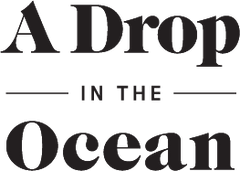


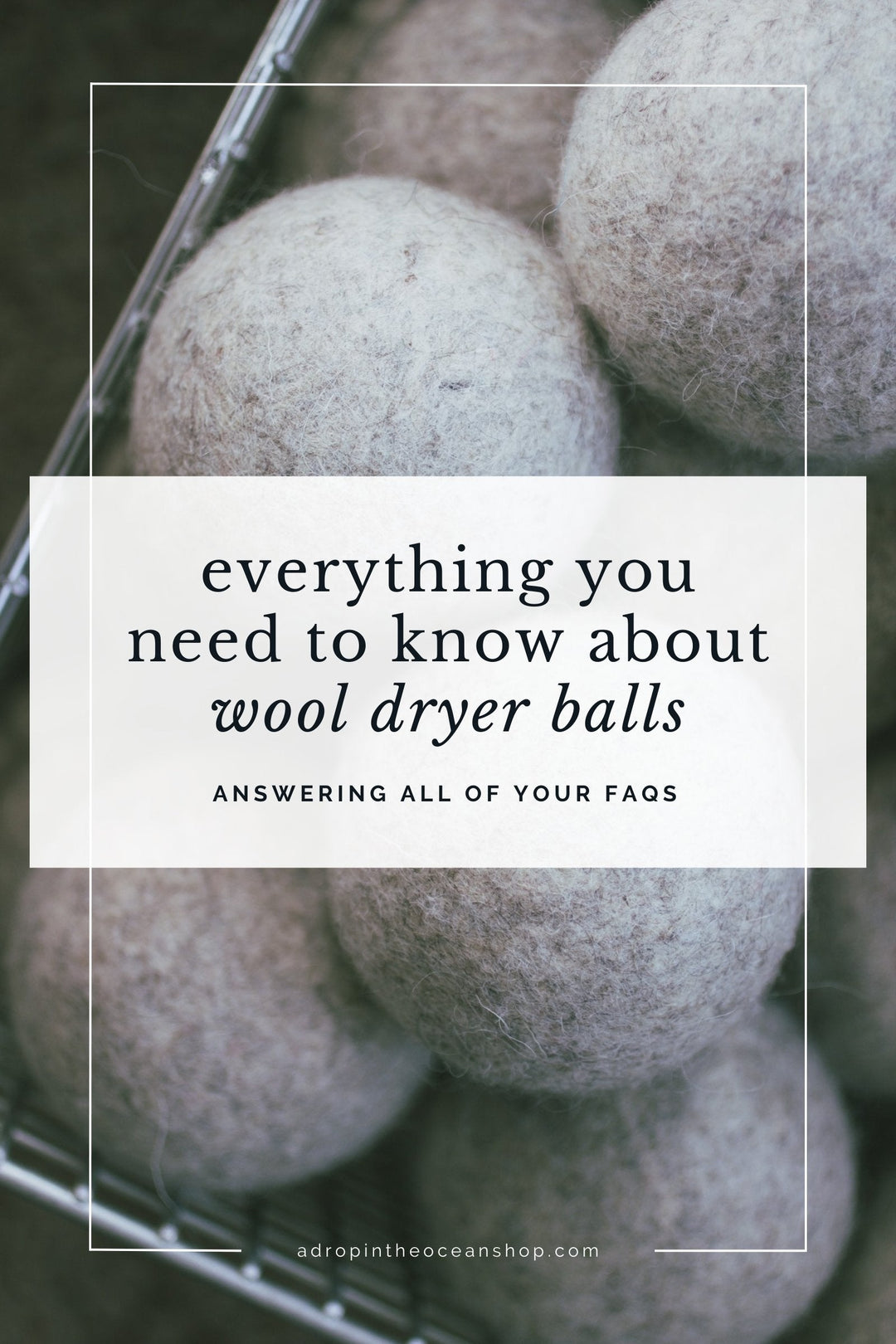
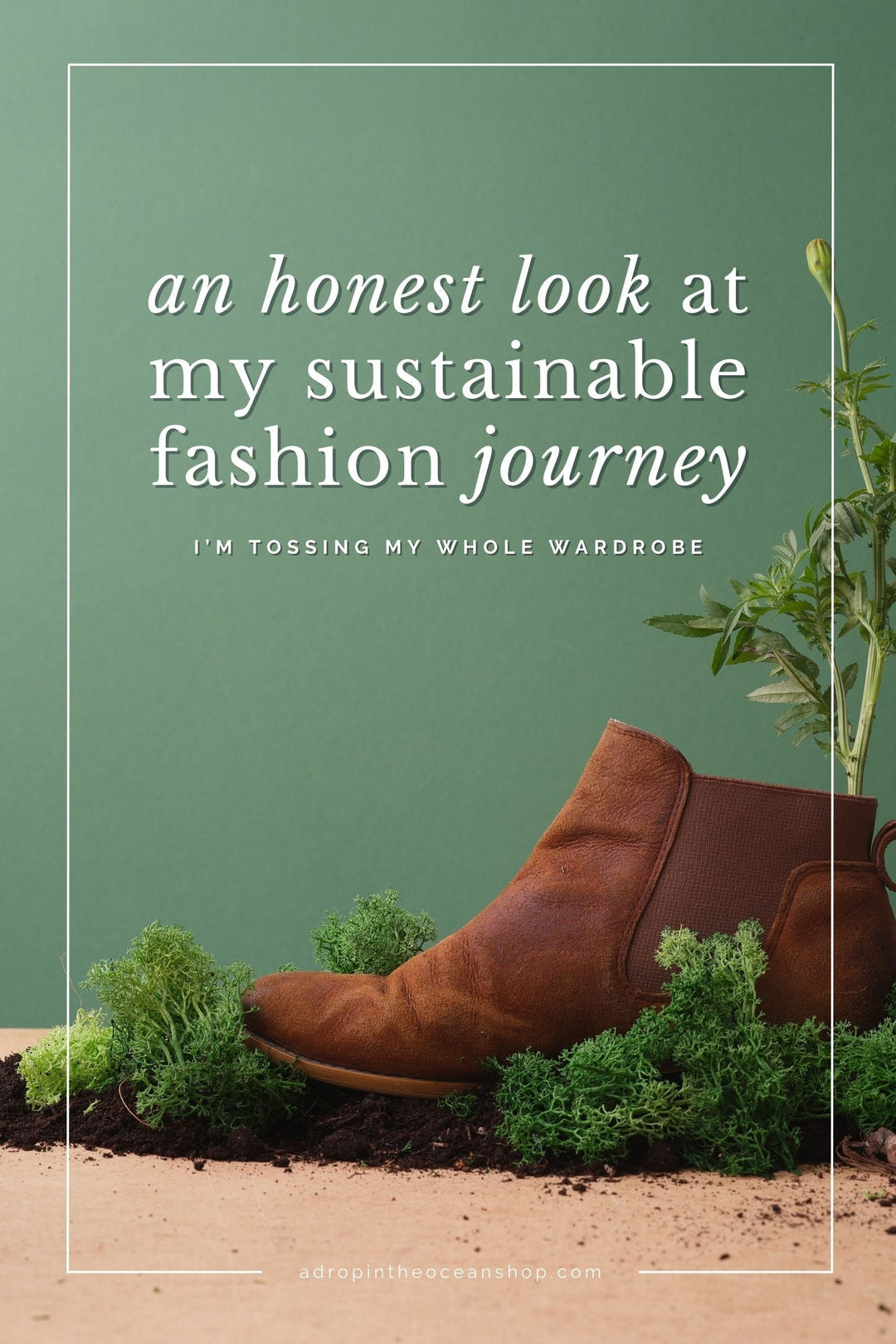
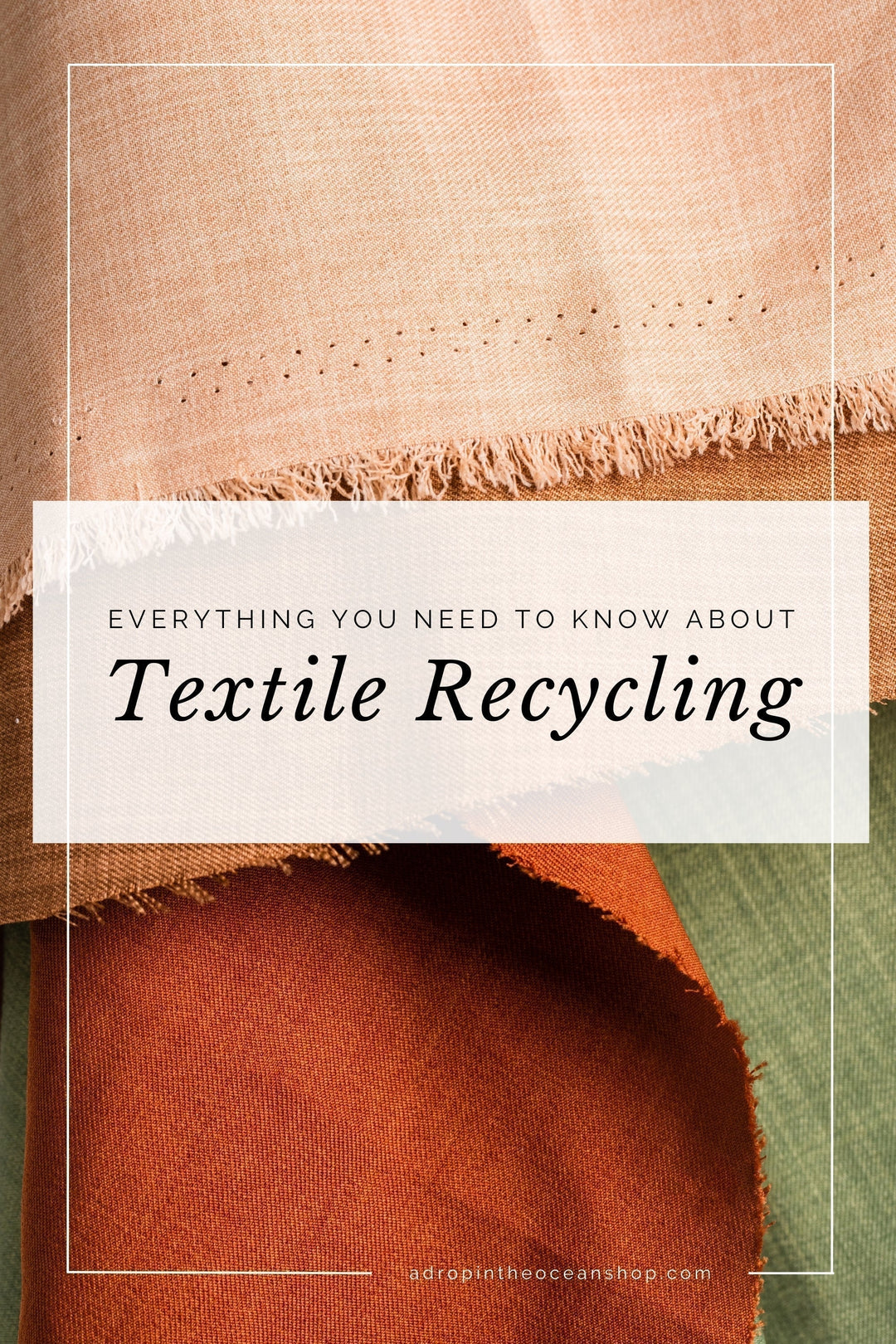
@Kirsten — I hear you, and we’re alllll about taking action and building momentum together around here! 💙 I definitely recommend checking out our library of advocacy-related blog posts for some additional action steps and how we can keep companies and governments accountable! There’s a lot of ’em!
https://adropintheoceanshop.com/blogs/blog/tagged/advocacy
I appreciate all the time you put into researching and summarizing this complicated issue. I would love it if the article ended with one or two suggested steps people can take to put more pressure on corporations and the govt. Perhaps info about Beyond Plastics groups if you think they do good work, or some other way to help people organize and take action. I do believe strongly that if we could coordinate our efforts, businesses and govt would be incentivized to take action.
@Jai – I hear you, but one of the key points to my perspective here is that most things being sent to specialty recycling programs, such as Terracycle, aren’t actually being recycled. They’re going to landfill or ending up in the ocean on the other side of the world. If these things were actually being recycled in a responsible and sustainable way, that would be different. But many journalists have found that Terracycle is often lying about where their items end up, and they’ve been sued for false claims in their marketing.
It’s not about “all or nothing” – it’s about companies telling us one thing and doing another, while the producing companies just keep on producing like nothing is wrong, because the smoke and mirrors let us think there’s not.
I focus on reducing my plastic and hard to recycle purchases in the first place. It means more work for me as I make my own potato chips and snacks, including granola but it means I have a lot less trash and the challenge for me every week is to see how empty I can keep my curbside garbage cans. Reducing is my goal… besides the energy and water needed to recycle is immense and not considered a lot in these situations and times.
I’m in no way affiliated with any recycling related company whatsoever. You have a lot of great points, but in the end your argument is a very “let’s only make abstinence a choice, no alternative contraceptives” skewed type of alternative. We need programs like teracycle because corporations and the government will never get where we want them to be to stop the production. It would be incredible if the government actually incentivized companies like Terracycle to replace production of plastic for benches or children’s playgrounds. I don’t find the argument of “all or none” appealing, especially knowing how much humans in particular consume all across the world – not just in America. We will never stop overconsumption in our lifetime as it’s ingrained in many humans. Any steps towards a more sustainable future, even if that includes closed-loop recycling, is a step in a positive direction.
Leave a comment